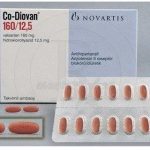
Contents
Dimercaprol
Developed during World War II as an experimental antidote against the arsenic-based poison gas Lewisite, dimercaprol is a chelating agent that forms stable, water-soluble metal complexes with metal ions. It is used off-label for polonium poisoning and to treat Wilson disease, a rare genetic disorder that causes copper accumulation in the body.
Dimercaprol reduces or reverses metallic binding with sulfhydryl-containing enzymes in the body by forming complexes with metals such as arsenic, gold, mercury, and lead. This, in turn, prevents poisoning from these metals.
Dimercaprol is not orally absorbed and must be administered via deep intramuscular injection, which can be painful. Treatment usually lasts for 10 to 15 days to promote the continued excretion of metallic poisons. Adverse reactions, such as vomiting, convulsions, and stupor, typically resolve within 6 hours following the injection.
Warnings
- Avoid administering dimercaprol intravenously.
- Use caution when administering dimercaprol to patients with peanut allergy, as it contains peanut oil.
- Do not use dimercaprol in patients with liver insufficiency, unless it’s for postarsenical jaundice.
- Avoid using dimercaprol to treat iron, cadmium, or selenium poisoning, as it can form more toxic complexes.
- When treating acute lead poisoning, use dimercaprol in conjunction with edetate calcium disodium to prevent worsening of lead’s neurotoxic effects.
- Exercise caution when using dimercaprol in patients with G6PD deficiency.
- Use with caution in patients with low urine output (oliguria) and discontinue treatment if kidney failure occurs.
Side Effects of Dimercaprol
Common side effects of dimercaprol include:
- High blood pressure (hypertension)
- Rapid heart rate (tachycardia)
- Chest pain
- Headache
- Fever in children
- Burning sensation in the lips, mouth, and throat
- Tightness and/or pain in the throat, chest, or hands
- Inflammation of the conjunctiva (conjunctivitis)
- Spasm of the eyelids (blepharospasm)
- Watering eyes (lacrimation)
- Nasal discharge (rhinorrhea)
- Nausea
- Vomiting
- Salivation
- Throat swelling and irritation
- Sore throat
- Abdominal pain
- Tingling of hands (paresthesia)
- Anxiety
- Nervousness
- Weakness
- Burning sensation in the penis
- Excessive sweating (diaphoresis)
- Pain at the injection site
- Painful sterile abscesses
- Kidney insufficiency
- Low count of leukocyte immune cells (leukopenia)
Contact your doctor immediately if you experience any of the following symptoms or serious side effects while using this medication:
- Serious heart symptoms such as fast or pounding heartbeats, fluttering in your chest, shortness of breath, and sudden dizziness
- Severe headache, confusion, slurred speech, severe weakness, vomiting, loss of coordination, feeling unsteady
- Severe nervous system reaction with very stiff muscles, high fever, sweating, confusion, fast or uneven heartbeats, tremors, and feeling like you might pass out
- Serious eye symptoms including blurred vision, tunnel vision, eye pain or swelling, or seeing halos around lights
This is not an exhaustive list of side effects or adverse reactions. Please consult your doctor for medical advice regarding serious side effects or adverse reactions. You may also report side effects or health issues to the FDA at 1-800-FDA-1088.
Dosages of Dimercaprol
Injectable Solution:
- 100 mg dimercaprol – 210mg benzyl benzonate – 680mg peanut oil/mL
Adult and Pediatric Dosage:
Arsenic/Gold Poisoning:
- Day 1-2: 10-12 mg/kg/day divided every 6 hours deep IM for 2 days
- Day 3: 5-6 mg/kg/day divided every 12 hours deep IM for 1 day
- Day 4-14: 2.5-3 mg/kg deep IM once daily for 11 days
- Severe gold dermatitis: 2.5 mg/kg IM every 4 hours for 2 days, then twice daily for 1 week
- Gold-induced thrombocytopenia: 100 mg IM twice daily for 15 days
- Day 1: 5 mg/kg deep IM once daily for 1 day
- Day 2-11: 2.5 mg/kg deep IM every 12-24 hours for 10 days
Lead Poisoning:
- Initial dose of 4 mg/kg (75-83 mg/sq. meter) IM
- Repeat dose at least 4 hours later (but not until adequate urine flow is established), THEN
- Dose of 4 mg/kg (75-83 mg/sq. meter) and ethylenediaminetetraacetic acid (EDTA) 250 mg/sq. meter IM every 4 hours for 3-5 days
- If blood lead concentration rebounds to greater than 45 mcg/dL [2.174 micromoles/L] within 5-7 days, may repeat the course of treatment (usually just EDTA without dimercaprol)
Wilson Disease (Off-label):
- Rarely used due to painful deep IM injection
- 2.5-3 mg/kg IM twice daily/three times daily
Dosing Considerations:
- Adjust dose to achieve urinary copper excretion of 0.5-1 mg/day
- Maintain free copper levels in serum at less than 10 mcg/dL
Other Information:
- Preadministered antihistamines may help decrease side effects
Other Indications and Uses:
- Do not use in cases of iron, cadmium, or selenium poisoning due to the formation of toxic complexes
- Use dimercaprol in conjunction with other agents (calcium-sodium-EDTA) in cases of acute lead poisoning
Overdose:
- Dosages above 5 mg/kg can cause vomiting, convulsions, and stupor within 30 minutes of injection. Symptoms usually subside within 6 hours.
Drug Interactions with Dimercaprol
Inform your doctor about all medications you are currently taking to determine any potential drug interactions. Do not begin, discontinue, or change the dosage of any medication without your doctor’s recommendation.
- Severe interactions with dimercaprol include:
- Multivitamins, iron salts, and iron preparations (can enhance their toxic effect)
The drug interactions mentioned above are not exhaustive. For more information on drug interactions, consult the RxList Drug Interaction Checker.
Always inform your doctor, pharmacist, or healthcare provider about all prescription and over-the-counter medications you are using, including their dosages. Keep a list of this information. If you have any questions about your medication, please consult your doctor or healthcare provider.
Pregnancy and Breastfeeding
- There are no available animal or human reproductive studies on dimercaprol, and its effects on reproductive capacity and fetal development are unknown. It should only be administered to pregnant women if absolutely necessary.
- It is not known if dimercaprol is excreted in breast milk. Exercise caution when using dimercaprol in nursing mothers, as most drugs are excreted in breast milk.
By clicking Submit, I agree to MedicineNet’s Terms & Conditions & Privacy Policy and understand that I may opt out of MedicineNet’s subscriptions at any time.
Summary
Dimercaprol is an antidote for poisoning from minerals such as arsenic, gold, and mercury. It is also used in conjunction with edetate calcium disodium to treat acute lead poisoning. Common side effects include high blood pressure, rapid heartbeat, chest pain, headache, fever in children, burning sensation in the lips, mouth, and throat, tightness and/or pain in the throat, chest, or hands, inflammation of the conjunctiva, spasm of the eyelids, watering eyes, nasal discharge, nausea, vomiting, salivation, throat swelling and irritation, sore throat, abdominal pain, tingling of hands, anxiety, nervousness, weakness, burning sensation in the penis, excessive sweating, pain at the injection site, painful sterile abscesses, kidney insufficiency, and low count of leukocyte immune cells.


